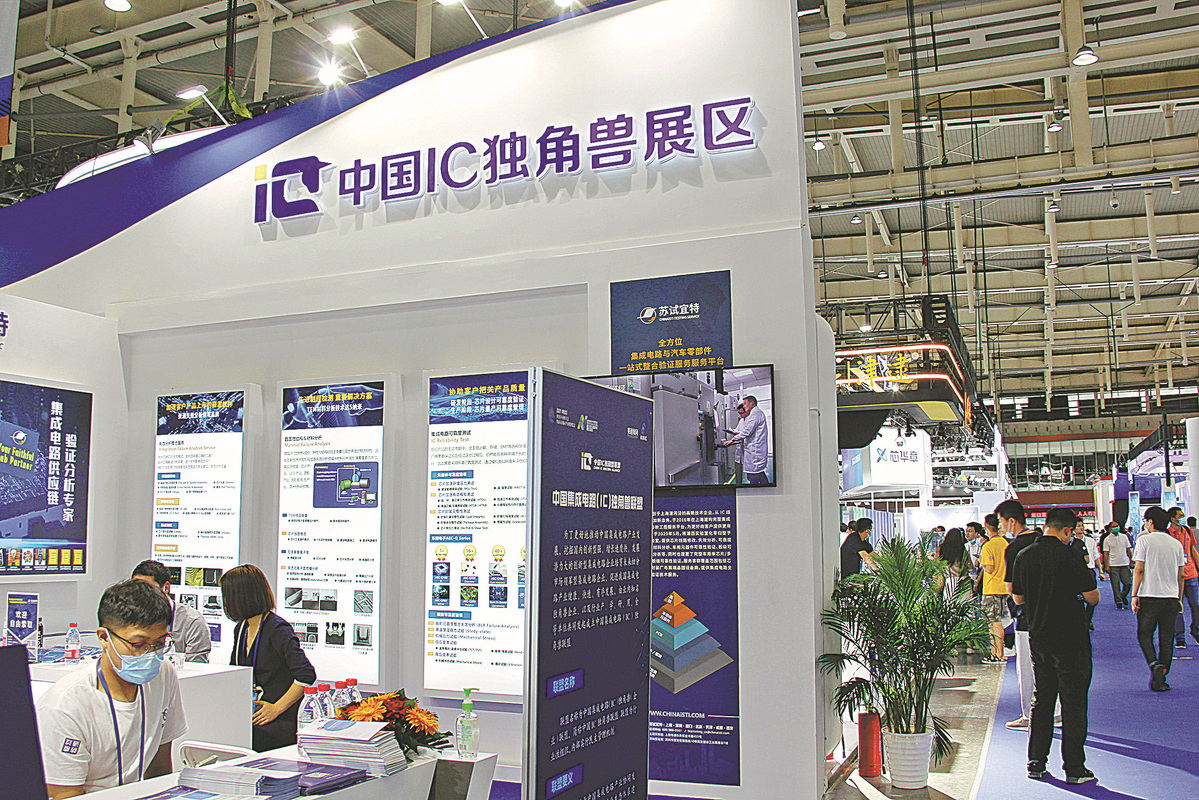Efforts in entrepreneurship, innovation make China home to more unicorns

Employees man a booth promoting integrated circuit unicorns during a high-tech expo in Nanjing, Jiangsu province, in June. [Photo by Wang Luxian/For China Daily]
China ranked second globally in the number of unicorn companies, or startups valued at more than $1 billion, in 2021, with rising unicorns growing to become "decacorns" with a valuation of more than $10 billion, the latest industry report said.
A report by market consultancy CB Insights said the United States was home to the most unicorns globally last year with the number reaching 488. China followed with 170 unicorns.
According to the report, 31 percent of global unicorns are valued at around $1 billion and only 46 global companies are decacorns, among which 10 Chinese companies-including tech firm DJI Innovations, social content firm Xiaohongshu and consumer brand Yuanqi Senlin-made the list last year.
Notably, Chinese tech giant ByteDance, the parent company of video platform TikTok and its Chinese sister app Douyin, came in as the most valuable former unicorn worldwide. With its valuation surging to $140 billion, ByteDance also stands with US startup Elon Musk's Space X to become the only two "hectocorns", or startups valued at more than $100 billion, globally.
The report said the number of global unicorns hit 1,000 with a total valuation of nearly $3.3 trillion as of the beginning of February.
Last year alone, more than 517 unicorns were newly added to the list with the US and China contributing 300 and 40 companies, respectively.
Fintech is the largest category, accounting for roughly one in every five unicorns, and is followed by internet software and services as well as e-commerce and direct-to-consumer industries.
China has been encouraging and investing big in innovation and entrepreneurship. By 2025, the country aims to develop 1 million innovative small and medium-sized companies, 100,000 SMEs specializing in niche sectors and 10,000"little giant "companies, or small enterprises still at the early stage of development but focused on the new generation of information technology.
China also launched the science and technology innovation board, or the STAR Market, which is under the Shanghai Stock Exchange and helps a group of outstanding science and technology companies to enter the capital market and allows ordinary people to share the dividends of the nation's new economy development.
"China has a sound system for entrepreneurship, a huge market and a large number of diligent people, which has impressed investors from all over the world," said Shen Nanpeng, founding and managing partner of Sequoia Capital China.
"Local provincial governments are also starting incubators and guiding funds. As they launch incentive policies to encourage high-tech enterprises, it makes it much easier for young entrepreneurs to start their own businesses," Shen said.
- Volkswagen invests 2.5 billion euros to expand innovation hub in China
- GLOBALink | Italian business leader hails China's forward-looking investment in innovation
- AstraZeneca makes Shanghai its fifth global strategic hub
- China vows to support development of future industries
- Iconic Chinese bicycle brand promotes higher-quality development with innovation

